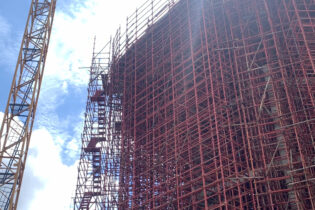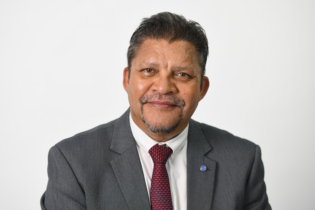There are three distinct components regarding energy security in Africa. They form the backbone of socio-economic stability which includes price, supply and sustainability. Certain countries dependant on hydrocarbon potential, for example, will approach their energy security differently to those countries that depend on oil for energy security. The type of economy a country has will also influence its approach to energy security.
South Africa is a primary resource environment dependant on coal for energy, and as climate change is of global concern, South Africa along with the rest of Africa and the world, is coming under increasing pressure to reduce emissions. As Africa develops and people emerge out of poverty, so the demand for energy will increase and this will impact on the demand for a reduction in emissions. Although Africa is endowed with rich energy resources, it is becoming imperative to find solutions that provide power for economic growth and development but at the same time address environmental challenges. The Africa Energy Indaba (AEI) has become the perfect international business forum to address these issues and to liaise with experts that have a global understanding of the carbon challenges that have manifested worldwide. This sharing of expertise and mutually shared objectives towards “making a difference”, remains the hallmark of this successful conference, now in its sixth year. Industry in South Africa is challenged by volatility of price and availability of electricity. In a developing country like South Africa where it is necessary to create employment and address considerable educational issues, creating new businesses remains the cornerstone towards a healthy, vibrant and sustainable economy. Long term planning, an effective regulatory environment coupled with investment will ultimately enable the South African energy sector to meet its ever growing demand. Energy security must be seen as the starting point in attempting to solve these issues. The need for power for economic growth and development includes addressing another pertinent aspect of energy security which highlights the trend in Africa for energy deficient countries to approach their neighbours for electricity supply. This type of co-operation, will ensure a healthy energy industry for economic growth and development for South Africa and its neighbours.In this instance, the Indaba remains the perfect business forum providing networking opportunities for decision-makers and leading role-players in government and business, who are committed to securing Africa’s energy future. “Africa needs to grow and with a current average growth rate in excess of 4% for the continent, the demand for power will increase and we as Africans, need to find solutions to our current power challenges as well as explore new sources of power supply.
This in itself provides for investment into the continent with energy technologies, creates jobs and helps Africans to empower themselves. Our business forum will showcase some of the latest trends and innovations in the energy sector and provide in depth knowledge to understand how we can move forward and grow our economies.” Says Liz Hart, Managing Director of the Africa Energy Indaba. Economic growth will be hampered by a lack of power; however, concrete measures coupled with restored confidence can only encourage investment which will inevitably support industry and commerce in South Africa. Fundamental to all thriving economies, developed and developing is the consistent need for robust Industry that drives energy demand, and is not constrained by a lack of supply of this vital commodity. The AEI also seeks to provide a platform to understand the research needed to transform the primary energy related industries of oil, gas and coal so that these abundant resources can continue to be exploited responsibly. Greater consciousness towards energy will provide for a better understanding of primary energy resources, the necessary shift towards ‘green’ and the addressing of sustainability issues in the context of developing countries, through discussion, sharing of ideas and networking.





